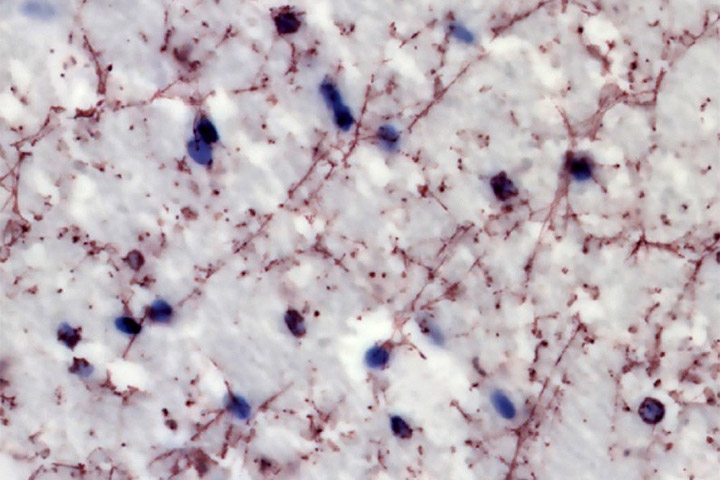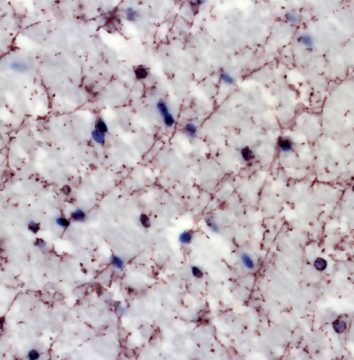
A new therapeutic target to combat addiction?
Among the authors : Anna Petitbon, Veronique De Smedt-Peyrusse, Roman Walle and Pierre Trifilieff, from NutriNeuro

© Andry Andrianarivelo and Peter Vanhoutte—Neuroscience Paris Seine laboratory (CNRS / Sorbonne University / INSERM)
Drug addiction is a psychiatric disorder for which no pharmacological treatment with long-term efficacy currently exists. All addictive substances share the property of raising concentrations of the neurotransmitter dopamine within brain regions forming the neural reward circuit. This increase in dopamine levels results in long-lasting alteration of signal transmission that is dependent on another neurotransmitter, glutamate, which causes addictive behaviours.
Through a new study, an international team including scientists from the CNRS, INRAE, the CEA, Sorbonne University, Paris-Saclay University, the University of Bordeaux, and Université Côte d’Azur* has uncovered, in mice and humans, the molecular bases of this deleterious interplay between dopamine and glutamate. The researchers’ work shows that the inhibition of interactions between dopamine and glutamate receptors prevents pathological behaviours provoked by cocaine in mice, without altering natural reward processing. Their findings, published in Science Advances (20 October 2021), pave the way for the development of new therapeutic strategies to treat addiction, and a wider spectrum of psychiatric disorders.
Note
*These scientists are affiliated with the Neuroscience Paris Seine laboratory (CNRS / Sorbonne University / INSERM), the Institute of Molecular and Cellular Pharmacology (CNRS / Université Côte d’Azur), the Neurogenerative Disease Laboratory (CNRS / CEA / Paris-Saclay University), and the NutriNeuro research unit (INRAE / Bordeaux INP / University of Bordeaux).
Press release in french: https://www.cnrs.fr/fr/une-nouvelle-cible-therapeutique-pour-lutter-contre-les-addictions
Reference
Disrupting D1-NMDA or D2-NMDA receptor heteromerization prevents cocaine’s rewarding effects but preserves natural reward processing.
Andry Andrianarivelo, Estefani Saint-Jour, Paula Pousinha, Sebastian P. Fernandez, Anna Petitbon, Veronique De Smedt-Peyrusse, Nicolas Heck, Vanesa Ortiz, Marie-Charlotte Allichon, Vincent Kappès, Sandrine Betuing, Roman Walle, Ying Zhu, Charlène Joséphine, Alexis-Pierre Bemelmans, Gustavo Turecki, Naguib Mechawar, Jonathan A Javitch, Jocelyne Caboche, Pierre Trifilieff, Jacques Barik, Peter Vanhoutte. Le 20 Octobre 2021, Science Advances. https://www.science.org/doi/10.1126/sciadv.abg5970
Last update 25/10/21
